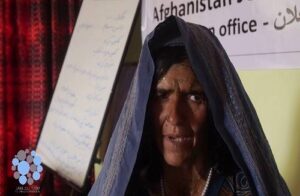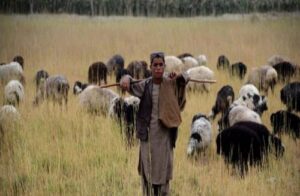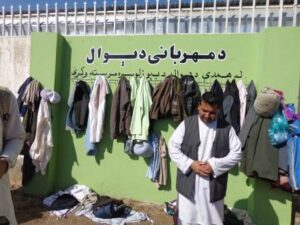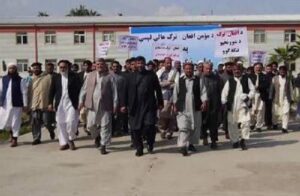TAKHAR (SW): Dawood, 11 years old, has been working in the Taqcha Khana Salt Mine in Namakabd district in Takhar for several years. From the very days that children should go to school, however, his father put him in a caravan of salt-miners and deprived him of schooling and education. Dawood works from 3 am to 5 pm daily.
Nearly 400 children between the ages of 8 and 17 have been working in Taqcha Khana Salt Mining in Namakab district of Takhar, due to poverty and inevitable pressure of the family. Challenges such as respiratory problems, physical weaknesses, inability to attend school, and being away from family, threatens these children in an uncertain way.
Lately, Salam Watandar has found evidence that the “Westco International” as a contractor for extracting salt from Taqcha Khana Salt Mine, has requested the authorities in Takhar to allow the under-age children to work for the company's salt mine.
In the letter no. 160 dated “17/02/1394”, Westco International wrote: “the Ministry of Mines and Petroleum has put pressure on the company to stop the extraction of salt mines by under-age children…”
.jpg)
According to Section 7, Article 1 of the Law on Combating Human Trafficking and Smuggling of Migrants, domination of the child for the purpose of exploitation is considered human trafficking. The child laborers are in the extremely bad situation and are deprived of all labor rights and also their pay is much lower compared to the adult workers. Out of these children, 100 have been working in the production of salt-stones, and more than 300 of them have been working to transfer the processed salts from mines to district market. However, their monthly salary is between 200 to 400 AFN.
A number of children workers have been working for 19 hours in a day without any break. Khaludin is 8 years old, and while he seemed very tired coming out of the Salt Mine, I asked him why he worked there? He said that he has begged his father to let him study, but his father’s answer has always been the same; that he has to work as a sweatshop laborer.
The salt mine is about three kilometers from the district’s market. Most of these children are forced to remove 6 cubic meters of salt from the tunnels up to 55 meters in depth, put them on donkeys and take them out to the market. Each load they put on the donkey weighs 12 Ser (approx. 84 kg), and this load will be sold to Salt merchants for 30 AFN, but local traders sell this salt to contracting companies for 5 AFN.
However, Mosawir Nasar Tayar, the CEO of the Westco International, claimed that children who work for this company are not miners and are only involved in the transport of salt stones.
In a response to the question that whether the employment of under-age children in Mines, is against the labor laws, and the Law on Combating Human Trafficking and Smuggling of Migrants, Mr. Nasar Tayar said that his company had planned several times to let the child laborers go; but the families of these children requested the company to keep them employed.
Abdul Fatah Ahmadzai, the spokesperson for the Ministry of Labor, Social Affairs, Martyrs & Disabled (MoLSAMD), said that children in Afghanistan, in terms of the Conventions on Children’s Rights, and other national and international laws, are deprived of all their rights and privileges. According to Mr. Ahmadzai, the forced labor and sweatshop work of children in Taqcha Khana Salt Mine have been discussed at various ministry meetings.
Mohammad Hassan Salimi, Head of Committee and Technical Secretary of Combating Human Trafficking, said that according to international conventions and treaties and new laws of the country; any work that can imperil children or potentially exploit or physically or mentally harm them, is considered human trafficking.
Abdul Qadir Motfi, the spokesperson for the Ministry of Mines and Petroleum, said there are 42 government centers and 45 private centers for raising children across Afghanistan that support and care for poor children and children laborers. However, according to Mr. Motfi, nearly three million children in Afghanistan are still exposed to exploitation, and about two million of them are forced labors.
ENDS





